Racism in America: A Reader
This free downloadable ebook from Harvard University Press presents excerpts from works of history, law, sociology, medicine, economics, critical theory, philosophy, art, and literature.
“Racism in America is for all curious readers, teachers, and students who wish to discover for themselves the complex and rewarding intellectual work that has sustained our national conversation on race and will continue to guide us in future years.”
ALA’s Black Lives Matter Comics Reading List
The Black Caucus of the American Library Association, together with ALA’s Graphic Novels and Comics Round Table, compiled a Black Lives Matter Comics Reading List to draw “attention to the Black experiences of the past and present to demand a new future for our Black friends and neighbors.”
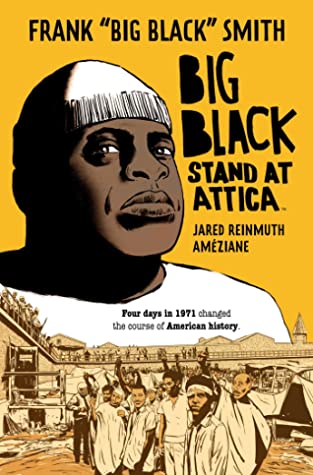
Big Black: Stand at Attica by Frank Smith
Four days in 1971 changed the course of American history. This is the true story from the man at the center of it all.
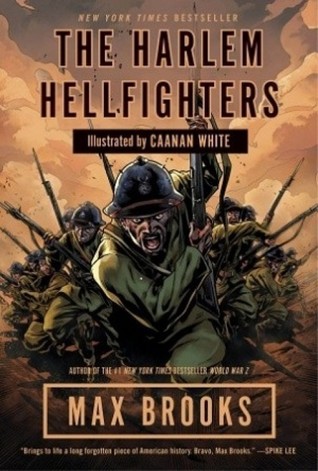
The Harlem Hellfighters by Max Brooks and Caanan White
A fictionalized account of the 369th Infantry Regiment, the first African American regiment mustered to fight in World War I.
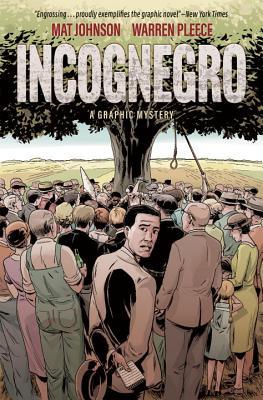
Incognegro by Mat Johnson, Warren Pleece, and Clem Robins
Black reporter Zane Pinchback goes undercover as a white man to investigate the arrest of his brother and save him from a lynch mob.
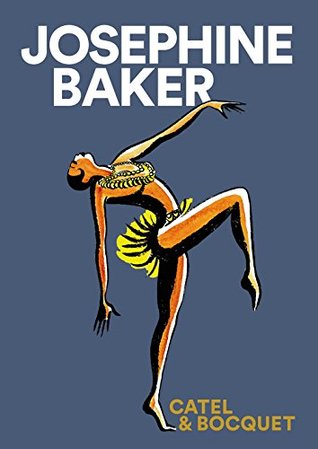
Josephine Baker by Catel Muller and José-Louis Bocquet
The glorious life and tumultuous times of Josephine Baker.

Kindred by Octavia E. Butler and Damian Duffy
A graphic-novel adaptation of Octavia E. Butler’s groundbreaking science-fiction classic offers an unflinching look at slavery, race, and the role of women in society.
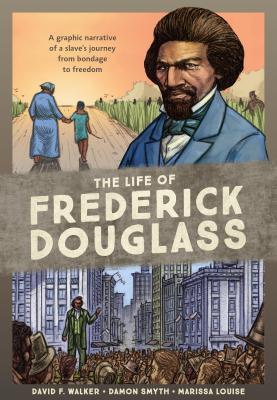
The Life of Frederick Douglass by David F. Walker, Damon Smyth, and Marissa Louise.
Celebrated comic book writer and filmmaker Walker presents the life of abolitionist Frederick Douglass in graphic format.

The Silence of Our Friends by Mark Long, Jim Demonakos, and Nate Powell (older edition available in Fanwood)
As the civil rights struggle heats up in Texas, two families-one white, one black-find common ground.
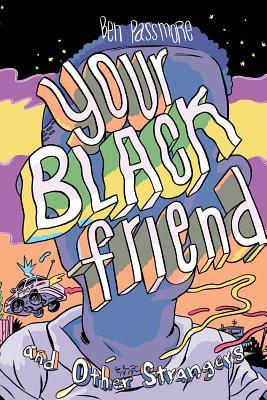
Your Black Friend and Other Strangers by Ben Passmore.
An exploration of the stresses and harm a Black man experiences in his everyday life through his relationships with non-Black people.
Reading Lists
We have provided links below to those that may be borrowed as ebooks or e-audiobooks through Overdrive and the Libby app. Print copies may be requested for contact-free pickup. If a book is checked out, you can place a ‘hold’ and you will be notified when it’s available to be picked up.
Please contact us if you have any questions about accessing these books.
An Antiracist Reading List by Ibram X. Kendi
By not running from the books that pain us, we can allow them to transform us.
The New York Times published this list by author and historian Ibram X. Kendi, whose book Stamped from the Beginning: The Definitive History of Racist Ideas in America won the 2016 National Book Award for Nonfiction.
The following are available to borrow or hold:

The Condemnation of Blackness: ““Black” and “criminal” are as wedded in America as “star” and “spangled.” Muhammad’s book traces these ideas to the late 19th century, when racist policies led to the disproportionate arrest and incarceration of blacks, igniting urban whites’ fears and bequeathing tenaciously racist stereotypes.”

Their Eyes Were Watching God: “Of course, the black body exists within a wider black culture — one Hurston portrayed with grace and insight in this seminal novel.”
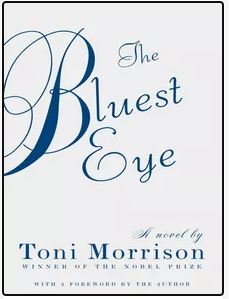
The Bluest Eye: “Beautiful and hard-working black people come in all shades. If dark people have less it is not because they are less, a moral eloquently conveyed…stirring explorations of colorism.”

Locking up Our Own: “Amid rising crime rates, black mayors, judges, prosecutors and police chiefs embraced tough-on-crime policies that they promoted as pro-black with tragic consequences for black America.”

Waiting ’til the Midnight Hour: “To be antiracist is not only to promote equity among racial groups, but also among their spaces, something the black power movement of the 1960s and 1970s understood well, as Joseph’s chronicle makes clear.”

How We Get Free: “Black feminist literature…helps us recognize black women “as human, levelly human,” as the Combahee River Collective demanded to be seen in 1977.”

Sister Outsider“…[M]y racialized homophobia made Lorde’s essays and speeches a challenge. But pain often precedes healing.”
Additional titles available in our collection:
17 Books On Race Every White Person Needs to Read
A list compiled by writers and reviewers for Bustle.com.
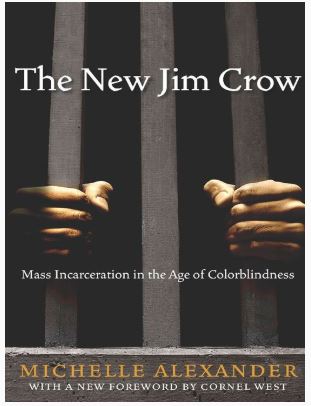
“A compelling argument that shows the many ways racial hierarchy still dominates American society, The New Jim Crow is a hard but necessary read.”
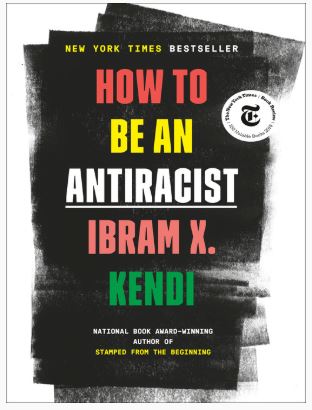
“How to Be an Antiracist explains why a personal opposition to racism and racist policies and behaviors does not excuse us from performing the civic duty of actively fighting against organizational structures that promote and maintain white supremacy.”
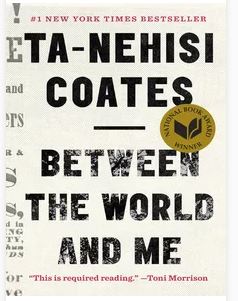
“Drawing from his own experiences as a black man in America, Coates explores the country’s fraught past and divisive present in an attempt to shed a light on creating a brighter future.”

White Fragility: “Most white people will admit that racism makes someone a bad person, but we draw the line at calling other people racist, or admitting to our own unconscious biases. Robin DiAngelo examines these defensive behaviors, mapping their roots and branches…

“A stunning history of the racial divides in metropolitan America and how they got there, The Color of Law makes clear the undeniable connection between discriminatory laws and policies enforced by the government and the long-reaching grasp of discrimination still alive today.”
Additional list titles available to borrow or hold:
- Slavery by Another Name by Douglas A. Blackmon (print)
- Tears We Cannot Stop by Michael Eric Dyson (print)
- So You Want to Talk about Race by Ijeoma Oluo (ebook and e-audiobook; print)
Book Riot’s 35 Must-Read Books about Racism
A recently-published list from an independent editorial book site that is “dedicated to the idea that writing about books and reading should be just as diverse as books and readers are.”
Available to borrow or hold:

- You Can’t Touch My Hair, and Other Things I Still Have to Explain by Phoebe Robinson (ebook and e-audiobook; print)
- Racism Without Racists by Eduardo Bonilla-Silva (e-audiobook)
- When Affirmative Action Was White by Ira Katznelson (e-audiobook)
- Killers of the Flower Moon (ebook and e-audiobook; print)
- Roots by Alex Haley (ebook and e-audiobook; print)
- Long Walk to Freedom (ebook and e-audiobook; print)
- Barracoon (ebook and e-audiobook; print)
- Night (ebook; e-audiobook; print)
- Born a Crime by Trevor Noah (ebook; print)
- Dreams From My Father by Barack Obama (ebook; e-audiobook; print)
- Sigh, Gone by Phuc Tran (e-audiobook)
Schomburg Center’s Black Liberation Reading List
The Schomburg Center for Research in Black Culture, a division of The New York Public Library, is one of the world’s leading cultural institutions devoted to the research, preservation, and exhibition of materials focused on African American, African Diaspora, and African experiences.
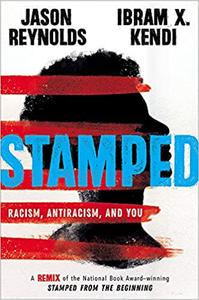
- Stamped: Racism, Antiracism, and You (Remix version for YA) by Ibram X. Kendi and Jason Reynolds (ebook and eaudio; print)
- Don’t Call Us Dead by Danez Smith (e- audiobook; print)
- Freedom is a Constant Struggle by Angela Y. Davis (e-audiobook)
- Citizen by Claudia Rankine (e-audiobook; print)
- The Hate U Give by Angie Thomas (e-audiobook; ebook; print)
- Just Mercy by Bryan Stevenson (e-audiobook and ebook; print)
- The New Jim Crow by Michelle Alexander (e-audiobook; ebook; print)
- Between the World and Me by Ta-Nehisi Coates (ebook and e-audiobook; print)
- Sister Outsider by Audre Lord (e-audiobook)
Online Video Resources
The Library’s online streaming video resource Kanopy Films offers many films and documentary series on racism. Besides these, view all films listed in their Social and Systemic Injustice category.
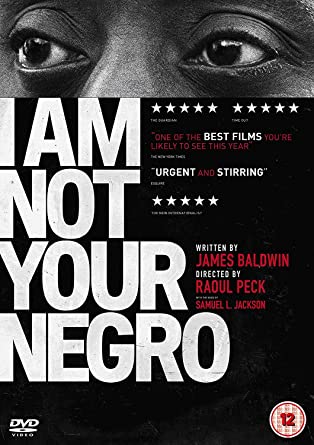
An Oscar-nominated documentary narrated by Samuel L. Jackson, I am Not Your Negro explores the continued peril America faces from institutionalized racism, a journey into black history that connects the past of the Civil Rights movement to the present of #BlackLivesMatter.
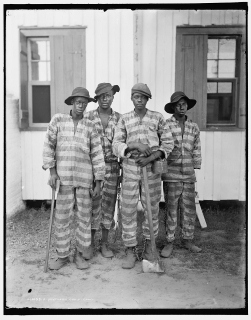
Slavery by Another Name challenges one of Americans’ most cherished assumptions: that slavery in this country ended with the Emancipation Proclamation. The film tells how even as chattel slavery came to an end in the South after the Civil War, new systems of involuntary servitude took its place with shocking force and brutality. Tolerated by both the North and South, forced labor lasted well into the 20th century.
Online Library Research Sources
Login with your Scotch Plains Library card number.

The African-American History Online database provides different perspectives through event and topic entries, slideshows, primary sources, images, videos, general and topic-specific timelines, biographies of key people, original maps and charts, and more.
